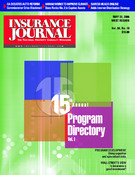Do you currently write a book of specialized industry accounts, or have you been trying to get a carrier to give you binding authority? Did you previously have a program, or do you have an idea for a new program/product but no in-force accounts? Your book of business may be perfect for a program, but before developing one, you might need to sell a carrier on why the endeavor is worthwhile.
When establishing a program, insurers look for an investment of their capital that will have the highest return on investment, will increase value to stockholders, and will increase investment earnings and dividends. So to build a compelling case that your industry and/or underwriting experience warrant a program, you need to prove that their investment of resources will generate a premium/revenue stream and sustain a viable business.
Among the things you should do before approaching an insurer are:
•Establish carrier relationships;
•Evidence your underwriting expertise;
•Collect and summarize your historical experience;
•Obtain market and industry data; and
•Build a business plan for your book.
Often, carriers will decline to build a program because of class, program size, there is no existing program, loss experience, distribution model, coverage issues, or the managing general agent is declined.
Among the first questions the carrier is likely to ask is whether this is a new venture, and whether it is an existing book as a retailer or wholesaler. Is this a new operation — have you hired a new team or individual, or was it by acquisition? Do you want to build a new program or offer a product extension? Or are you trying to rebuild a program you previously had?
Carriers want to work with someone who has insurance and industry knowledge. They also want to work with someone who has expertise within a niche program. And they want someone who can illustrate analytical skills in program management, a solid track record, integrity and is trustworthiness.
To prove that your business is worthwhile, summarize your agency’s history, products, production and results. You will need to provide premium and loss data, among other things. Be willing to discuss typical lines of business, limits, special coverages and the typical account profile.
To prove underwriting expertise, you will want to illustrate whether you have in-house expertise or if you are willing to hire new talent. You should present a risks/ mitigants assessment and note whether you have experience in a similar class. Insurers look for underwriting discipline, so it should be evident how your company evaluates risk. Are exceptions to underwriting guidelines clearly documented? Are there specific pricing guidelines?
Pull individual account data from your in-force book when collecting and summarizing your historical experience. Also obtain industry performance data. Be upfront about industry “horror stories.” In addition to worst case scenarios, the carrier will want to know what “typical” claims are.
Market and industry data helps the carrier understand whether the market can support a new program and what the competition will be. Consequently, you should discuss current regulatory, environmental, consolidation and growth trends. The carrier wants to know what regulatory and economical issues will affect the industry, and whether the changes are cyclical.
In his book, “Business at the Speed of Thought,” Bill Gates said, “I have a simple but strong belief. The most meaningful way to differentiate your company from your competition, the best way to put distance between you and the crowd, is to do an outstanding job with information. How you gather, manage and use information will determine whether you win or lose.”
The carrier wants to know how you differentiate yourself from your competition.
When building a business plan for your book:
•Request a copy of the submission outline or checklist as soon as you begin marketing;
•Be upfront regarding data “gaps;”
•Be realistic regarding your ability to satisfy data requests; and
•Recognize the importance of timely and comprehensive data.
•Include details regarding your product launch strategy, as well as expansion plans based on market conditions.
Remember, the key to building a successful program is to know your industry, provide quality quantitative data, know your competition and the marketplace, and have a strong business plan for the agency and program. Be data driven and concise as possible. After all, if you can sum up all of the information in an “elevator speech,” you should have the “hook” that will capture a carrier’s interest.
Lois J. Massa is vice president/sales for GE Insurance Solutions/Swiss Re. This article is based on a presentation she made at the Targets Markets ProgramAdministrators meeting in April.
Was this article valuable?
Here are more articles you may enjoy.


 ‘Structural Shift’ Occurring in California Surplus Lines
‘Structural Shift’ Occurring in California Surplus Lines  Q4 Global Commercial Insurance Rates Drop 4%, in 6th Quarterly Decline: Marsh
Q4 Global Commercial Insurance Rates Drop 4%, in 6th Quarterly Decline: Marsh  The $3 Trillion AI Data Center Build-Out Becomes All-Consuming for Debt Markets
The $3 Trillion AI Data Center Build-Out Becomes All-Consuming for Debt Markets  How One Fla. Insurance Agent Allegedly Used Another’s License to Swipe Commissions
How One Fla. Insurance Agent Allegedly Used Another’s License to Swipe Commissions 


